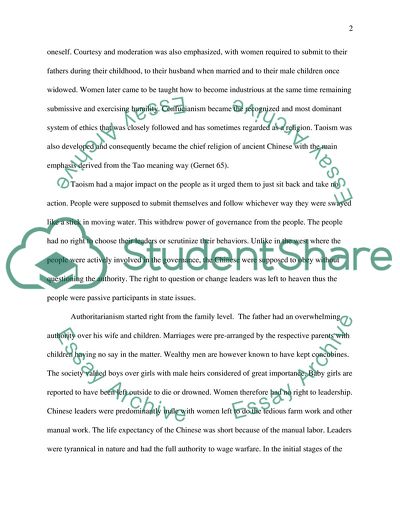Cite this document
(Power and the People in Ancient China Essay Example | Topics and Well Written Essays - 1750 words, n.d.)
Power and the People in Ancient China Essay Example | Topics and Well Written Essays - 1750 words. https://studentshare.org/history/1750986-discuss-the-issue-of-power-and-the-people-in-ancient-china
Power and the People in Ancient China Essay Example | Topics and Well Written Essays - 1750 words. https://studentshare.org/history/1750986-discuss-the-issue-of-power-and-the-people-in-ancient-china
(Power and the People in Ancient China Essay Example | Topics and Well Written Essays - 1750 Words)
Power and the People in Ancient China Essay Example | Topics and Well Written Essays - 1750 Words. https://studentshare.org/history/1750986-discuss-the-issue-of-power-and-the-people-in-ancient-china.
Power and the People in Ancient China Essay Example | Topics and Well Written Essays - 1750 Words. https://studentshare.org/history/1750986-discuss-the-issue-of-power-and-the-people-in-ancient-china.
“Power and the People in Ancient China Essay Example | Topics and Well Written Essays - 1750 Words”. https://studentshare.org/history/1750986-discuss-the-issue-of-power-and-the-people-in-ancient-china.


